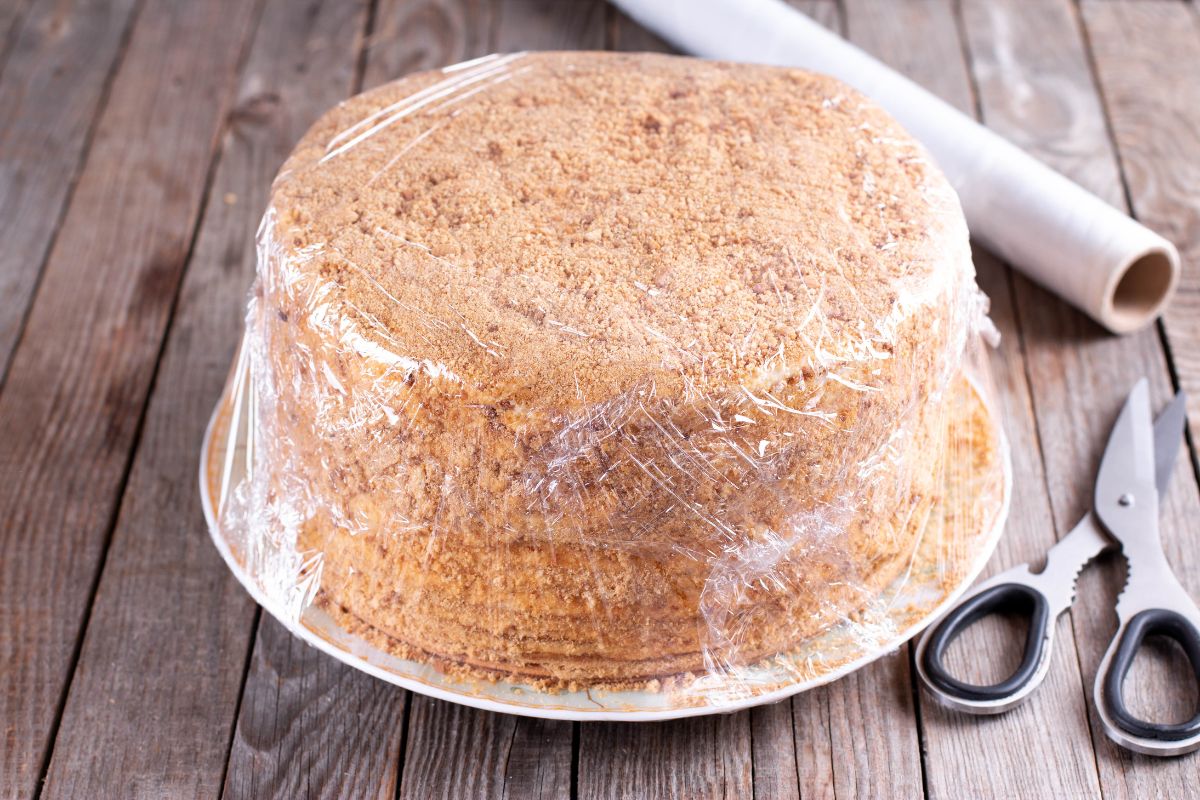
It is a biodegradable, vegetable spray that you can simply spray on food.
Everyone has a roll of cling film at the bottom of the drawer. This transparent plastic is ideal for covering a piece of cut fruit or a cake, for example. However, this is by no means environmentally friendly. After a single use, the foil that has since been curled up quickly ends up in the trash. That has to change, so thought American researchers. And in a new study they now present a sustainable and environmentally friendly alternative.
plastic problem
Pollution from single-use plastics has been called one of the biggest environmental disasters of this generation. This is because an alarming amount of plastic finds its way into nature in one direction or another. In addition, almost all plastics – about 90 percent – are currently petroleum-based and not biodegradable. And that’s a problem. Because plastic is hardly broken down in the environment, in principle it never disappears. It got researcher Kit Parker thinking. “I don’t want my child and grandchildren growing up in a sea of garbage I left behind,” he said in an interview with Scientias.nl† “So I took the problem to the lab.”
Alternative
Parker and his team started thinking about possible alternatives to plastic. “We’ve known for a while that we need to replace petroleum-based food packaging with something more sustainable and biodegradable and non-toxic,” said study researcher Philip Demokritou. “At the same time, we wondered if we could design food packaging that can extend a product’s shelf life, reduce food waste, and improve food safety at the same time.”
spray
That worked. And with a special spray that you can simply spray on food. “What we’ve come up with is a scalable technology that allows us to convert biopolymers – which can be recovered from discarded food as part of a circular economy – into ‘smart’ fibers that directly package food,” explains Demokritou. It is therefore a biodegradable, vegetable coating – consisting of thyme oil, citric acid and nisin – that forms a kind of layer when you spray it on a piece of fruit, for example. The resulting layer is firm enough to prevent browning of the food you want to store. In addition, it has antimicrobial properties, which means that the spray fights disease-causing microorganisms – such as the E. coli and listeria bacteria – and prevents the food from spoiling quickly. “Our material is part of the new generation of ‘smart’ and ‘green’ food packaging,” says Demokritou.
Avocado
Does it really work? Yes, of course. The researchers conducted several experiments and showed that the special spray can extend the shelf life of avocados by 50 percent. The coating can then be easily rinsed off the stored food with water. Moreover, the ‘smart’ fibers are completely broken down within three days. According to Parker, the developed spray is therefore a very good alternative to plastic household foil. “It is cheap, fast, sustainable, extends the shelf life of food and reduces food waste,” he sums up.
Plastic waste-free world
The special spray may be an important step towards a plastic-free world. Or better, a plastic waste-free world. “I’m not against plastic per se,” says Demokritou. “I am against petroleum-based plastics that we continue to throw away because only a small part can be recycled. It means that in the past 50 to 60 years we have dumped as much as six billion tons of plastic waste into our environment, where it breaks down into smaller and smaller pieces. these tiny fragments then end up in our drinking water, food and the air we breathe.”
Meanwhile, the evidence is mounting that small pieces of plastic – called microplastics – are bad for our health. Not only do these tiny pieces of plastic end up in the environment, they have already been found in our own bodies. A few months ago, for example, Dutch researchers discovered that plastic particles from the living environment end up in the human bloodstream. Plastic particles also appear to penetrate the deepest parts of our lungs. It is not yet known to what extent this can actually harm. However, several animal studies have shown that microplastics can disrupt metabolism and the gut. It is therefore very important to gain more insight into the possible effects of microplastics on our own health.
The less disposable plastic we use, the better. And the biodegradable, plant-based spray can be a promising replacement for household foil, which can already save a lot of plastic. Incidentally, more research is being done into suitable alternatives to plastic. Think of vegan spider silk, nanopaper and a combination of natural rubber and bioplastic. Each and every one of these promising possibilities, which can make an important contribution to tackling the plastic problem. “Our spray could therefore be part of a broader package of solutions,” says Parker.
The researchers are currently considering the further roll-out of their spray, so that it will eventually become available on the market. “We can already package food in the lab today,” Parker says. “So scaling up isn’t that difficult. We may then be able to bring it to people’s homes fairly quickly.”
Source material:
†Rutgers Scientist Develops Antimicrobial, Plant-Based Food Wrap Designed to Replace Plastic– Rutgers University
Interview with Kit Parker
Image at the top of this article: Qwart from Getty Images (via Canva.com)